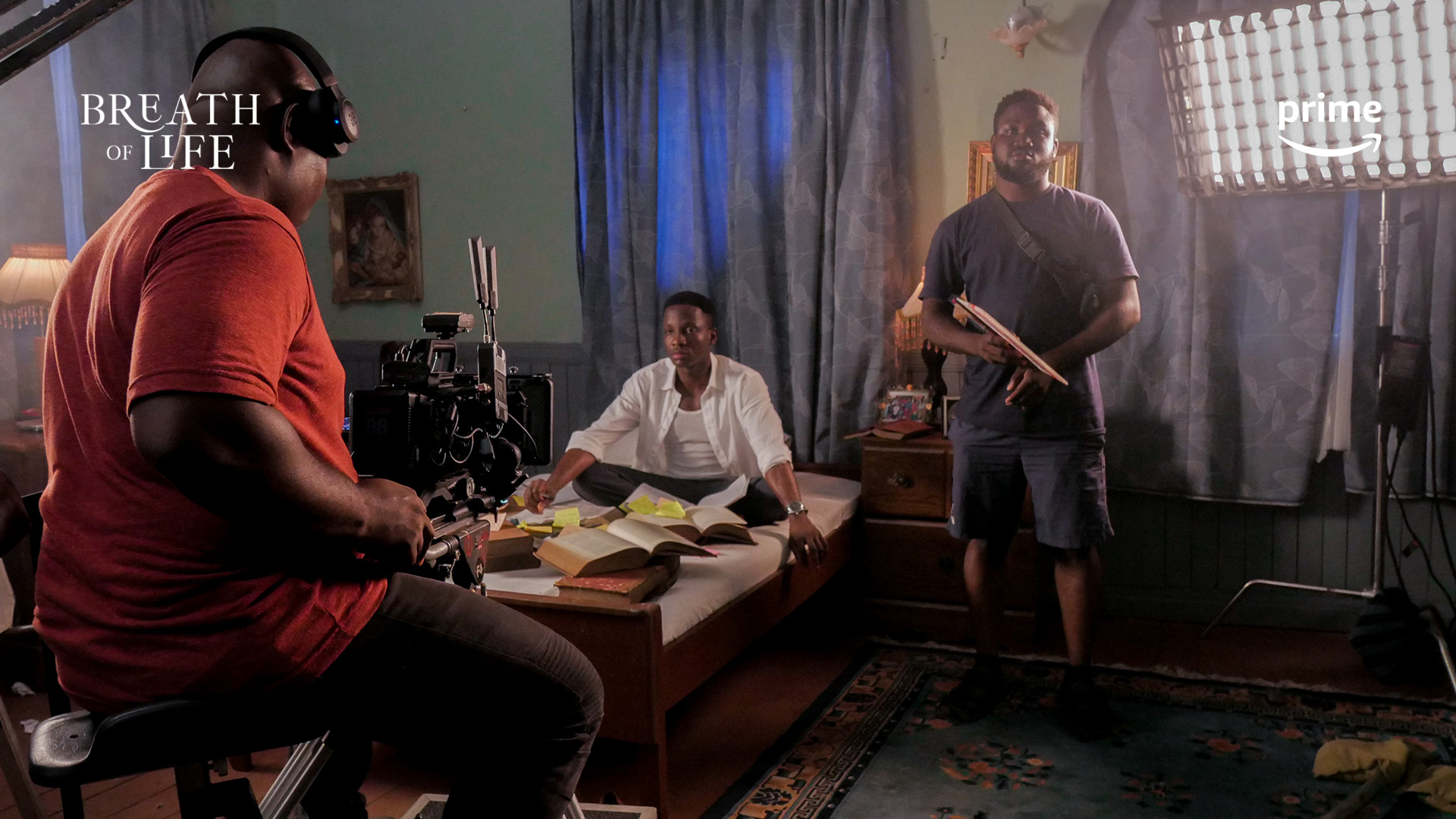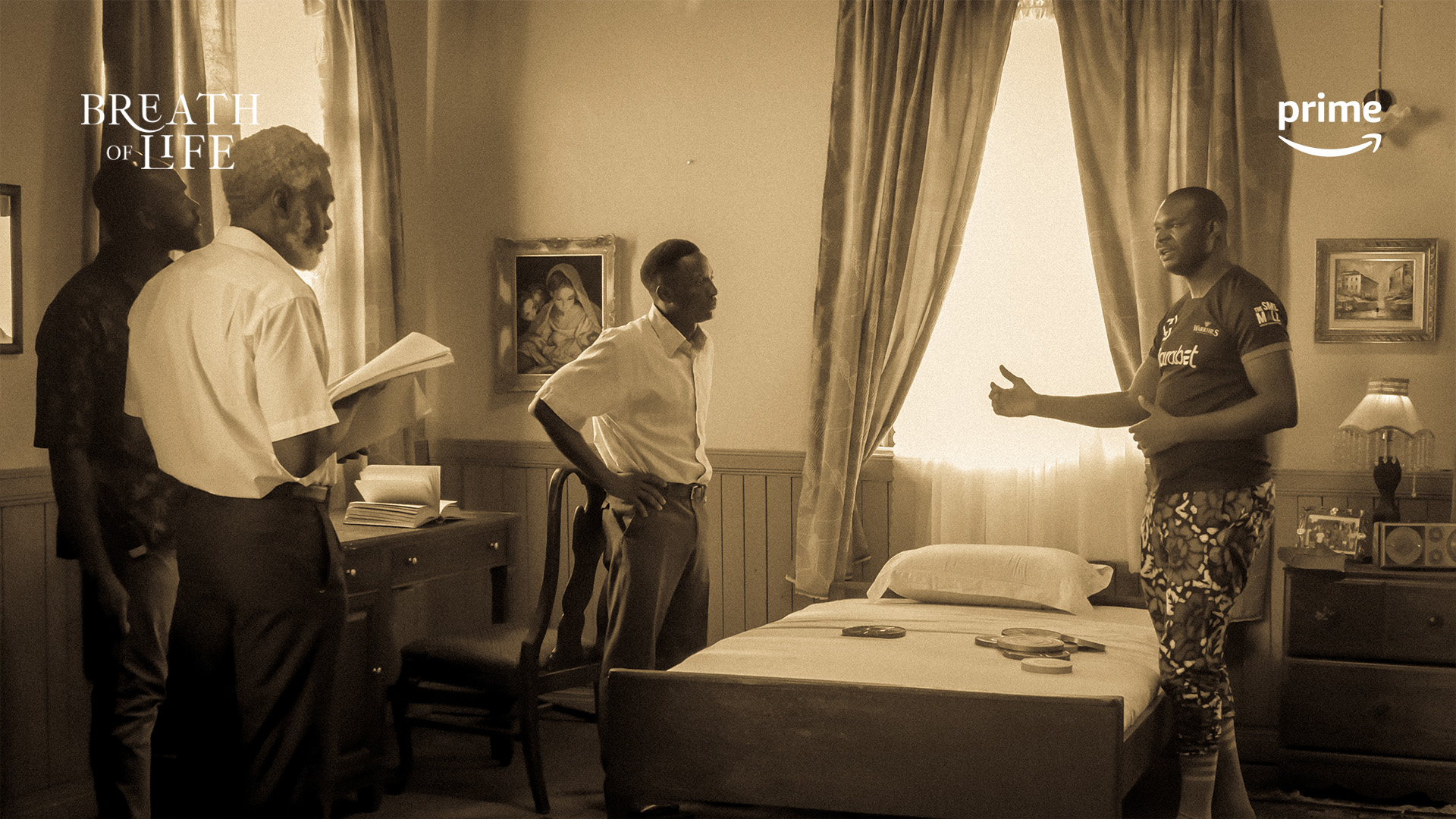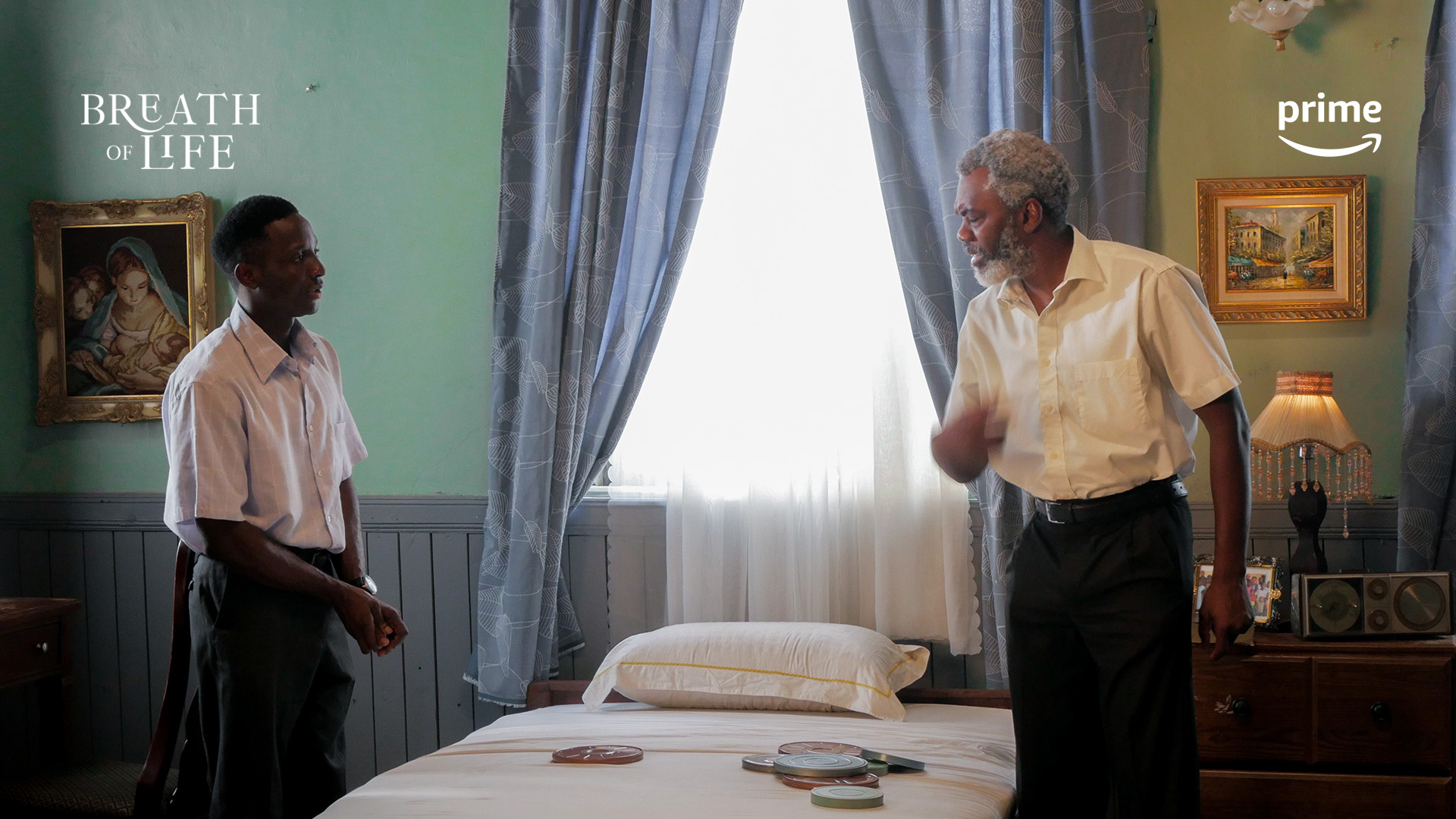From the very outset of the two-hour cinematic experience, “Breath of Life” distinguishes itself from typical Nollywood productions.
Set in 2060s South-South Nigeria, the film puts the audience in a futuristic environment complete with holograms and other elements that take viewers back to Hollywood’s futuristic aesthetics. The cinematography is exceptional, befitting the period film set in the mid-20th century.
The storyline unfolds as Reverend Timi, portrayed by Wale Ojo, witnesses the tragic death of his family – his wife and daughter burnt alive. Consumed by grief, he seeks revenge but remains haunted by the loss.
Time passes, and Elijah, played by Chimezie Imo, enters the picture, an ambitious youth aspiring to build a church while working as a domestic helper for Mr. Timi.
Deciphering the central message of “Breath of Life” proves challenging. Is it a testament to the mysterious ways of God? A lesson on taming adversity? An exploration of the corrosive effects of excessive wealth?

Throughout the film, “Breath of Life” initially hints at the familiar tropes that defined many Nollywood titles – the triumph of the righteous over adversity. However, it boldly diverges from these narrative structures, presenting its characters not as mere archetypes but as fully fleshed-out individuals navigating faith while acknowledging alternative paths to goodness, unbound by rigid religious affiliations.
The character of Mr. Timi stands out in achieving this nuance. Following the tragedy, he abandons the conventions of Christianity, leading a sad life of solitude. Impatient, intolerant, and irritable, he erects walls around him, yet his underlying goodness and struggle to express care are obvious.
Get the latest and greatest updates right away! Join our exclusive Whatsapp Channel and never miss out on exciting news again.
However, the film’s central message remains elusive as the narrative shifts from Timi to Elijah’s life and his budding romance with Anna, played by Genoveve Umeh.
“Breath of Life” regrettably succumbs to the difference between good versus evil that it had initially challenged.

When Chief Okonkwo, played by Sam Dede (Anna’s father), declines to repurpose a building – for which he has paid taxes – into a church, he is swiftly cast as the embodiment of evil, seemingly devoid of love for God or the desire to advance his work. This is where the film falters in maintaining its moral authority independent of religiosity.
In a society where religion has often sown discord, even a well-intentioned young pastor demanding ₦45 million for a church raises concerns. “Breath of Life” hastily concludes that opposition to such a substantial financial commitment to the work of God is inherently greedy.
Okonkwo, who eventually offers the ₦45 million, expecting repayment, is relegated to one of Nollywood’s well-worn caricatures – the greedy rich man unwilling to share his wealth with the community. The film ends with Mr. Timi resuming his spiritual journey.
There were alternative paths for “Breath of Life” to uphold its moral high ground while preserving its spiritual essence. However, by choosing this path, it transforms from a journey of self-discovery for Timi and a coming-of-age story for Elijah into a conventional religious film, restating the notion that a meaningful life can only be found in God.
Check here for more updates.










































